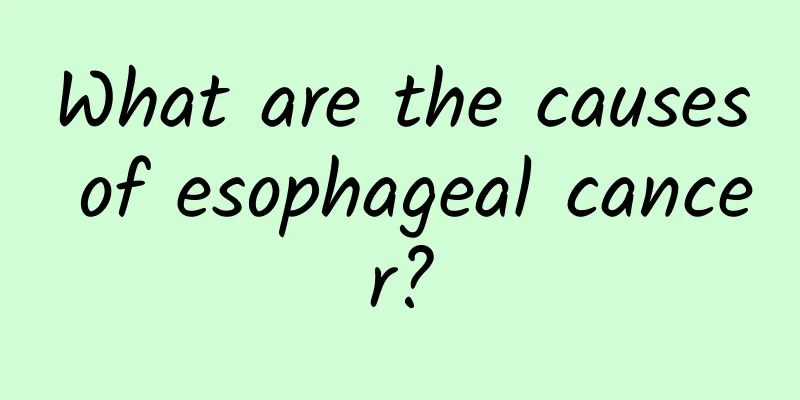What are the causes of esophageal cancer?

|
Esophageal cancer is a global cancer with extremely serious harm. According to the data of the World Health Organization (WHO), in 2008, there were 482,000 new cases of esophageal cancer in the world with a population of 6.75 billion, ranking eighth among all kinds of malignant tumors. The incidence of esophageal cancer in my country ranks fifth among malignant tumors, and the mortality rate ranks fourth, accounting for more than 50% of the world's cases and deaths. From 1998 to 2002, 38,339 new cases of esophageal cancer and 30,116 deaths were registered in 30 tumor registries in my country. Although the incidence of esophageal cancer in my country has shown a steady downward trend in recent years, it is still an important killer that threatens the lives of Chinese people and must arouse our high attention. The distribution of esophageal cancer in the population is related to age, gender, occupation, race, region, living environment, dietary habits, genetic susceptibility, etc. Existing survey data show that esophageal cancer may be a disease caused by multiple factors. The proposed causes are as follows: 1. Chemical etiology Nitrosamines. These compounds and their precursors are widely distributed and can be formed both inside and outside the body. They are highly carcinogenic. In high-incidence areas, the levels of nitrites in food, drinking water, pickled vegetables, and even in the saliva of patients are much higher than those in low-incidence areas. 2. Biological causes Fungi. A variety of fungi can be isolated from food in certain high-incidence areas, the upper digestive tract of esophageal cancer patients, or resected esophageal cancer specimens. Some of these fungi are carcinogenic. Some fungi can promote the formation of nitrosamines and their precursors, further promoting the occurrence of cancer. 3. Lack of certain trace elements The content of molybdenum, iron, zinc, fluorine, selenium, etc. in grains, vegetables and drinking water is relatively low. 4. Vitamin Lack Lack of vitamin A, vitamin B2, vitamin C, and insufficient intake of animal protein, fresh vegetables and fruits are common characteristics in areas with a high incidence of esophageal cancer. 5. Factors such as smoking, drinking, hot food, hot drinks, and unclean oral cavity Long-term drinking of strong alcohol, smoking addiction, eating hard, overheated food, eating too fast, causing chronic irritation, inflammation, trauma or oral hygiene, tooth decay, etc. may be related to the occurrence of esophageal cancer. 6. Genetic factors Genetic susceptibility factors for esophageal cancer. |
<<: A powerful anti-inflammatory ingredient is hidden in this "golden seasoning"
>>: 6 early symptoms of esophageal cancer
Recommend
Can pregnant women eat avocados in the early stages?
Pregnant women should be very careful in the earl...
What causes vulvar chapping?
Chapped skin is a well-known skin disease. The mo...
Is it painful for women to have inverted nipples?
Many women have inverted nipples due to various r...
Why is there brown discharge?
Some women suddenly found some dark brown blood i...
Can pregnant women use salt water to relieve itching in their lower body?
Nowadays, many pregnant women have a lot of secre...
How many days after the end of menstruation is the safe period?
In today's life, many women don't know mu...
Fat loss diet plan for girls
Summer is here, and it's time to take off our...
What causes postpartum sweating?
In fact, many women are prone to sweating after g...
Will headaches during confinement lead to chronic illness? What to watch out for
Women will stay in confinement after giving birth...
Postpartum intercourse is too painful to enter
In the third month and the first month of pregnan...
Pay attention to these "mosquitoes" that you can't drive away!
Ms. Li (pseudonym), 52 years old this year, is an...
Which pregnant women are prone to amniotic fluid embolism?
Most people will turn pale when talking about amn...
How to identify the quality of almonds? What are the benefits of eating almonds?
Almonds are a specialty of Xinjiang, my country. ...
What is the cause of Koi mouth rot? How to deal with Koi mouth rot?
As people's quality of life improves, more an...
What is the reason for the small black blood vessels after abortion?
Many women will experience the phenomenon of smal...









